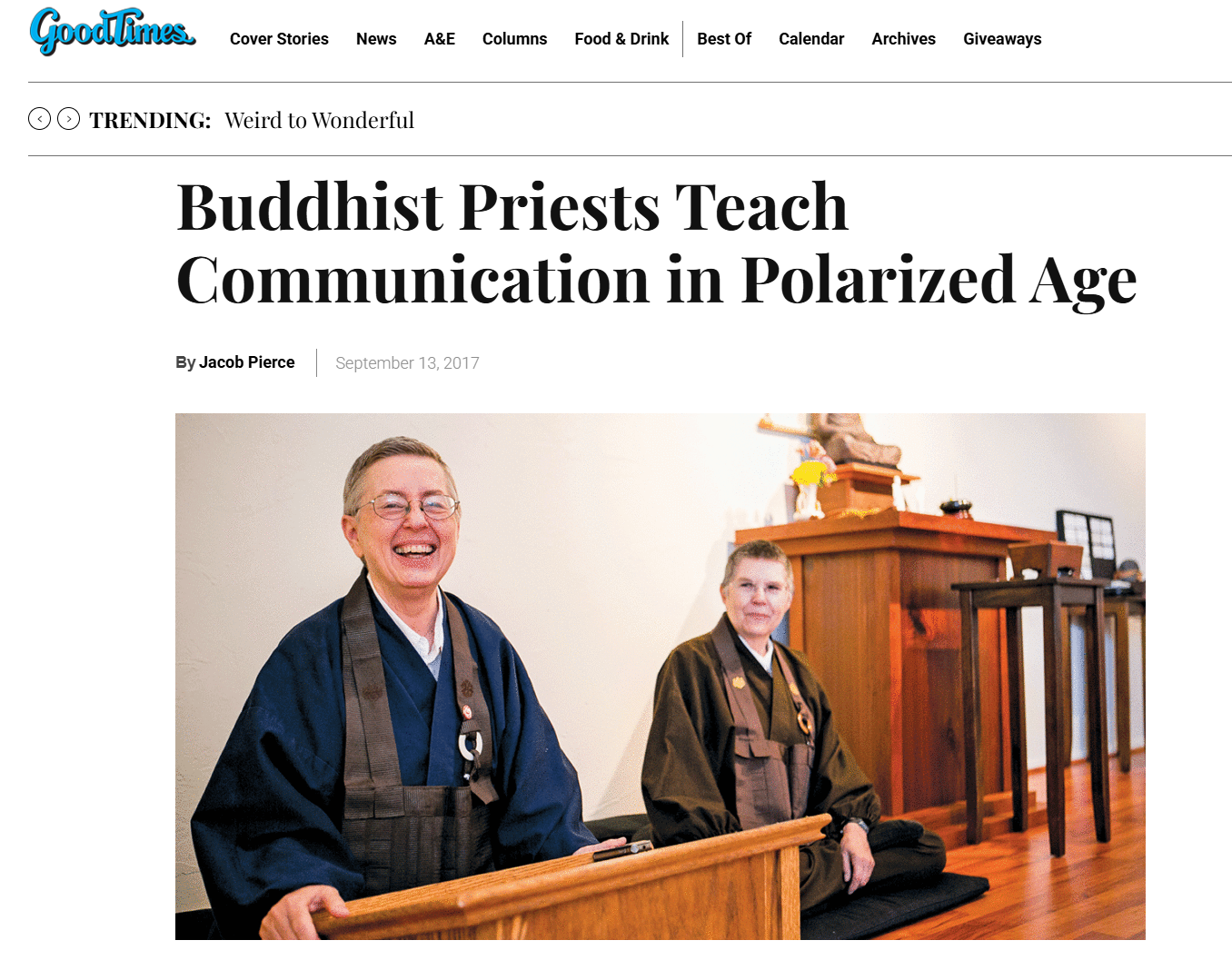Buddhist Priests in Santa Cruz Teach Communication in Polarized Age
Here are some short excerpts from this article on communicating with others in a polarizing age :
Jaku Kinst, a Buddhist priest at Ocean Gate Center on 41st Avenue, recently had what has become a typically treacherous conversation with a family member—which, if handled differently, could have easily gotten out of hand. Kinst doesn’t want to say who she voted for in the 2016 presidential election, but suffice it to say, her candidate did not win. Still, Kinst wanted to talk politics with a loved one she knew had voted for Donald Trump, in the hope that they might both reach a deeper sense of understanding of one another’s views.
She approached it with an awareness of the one element in any discussion between two individuals with clashing viewpoints that she considers more important than all of the rest: the mindset going into the dialogue.
‘The primary focus that I had going into the conversation was to remember that I love this person, to remember that I wanted to be gentle and kind and not judgmental, and to be open to listening to their point of view,” says Kinst, who will be co-teaching classes this fall on communicating peacefully in our fierce political climate.’
….There’s an unfortunate perception, according to Kinst, that Buddhism is something practiced up on a hill—its teachings only applicable ‘outside of time or outside of ordinary life,’ she says. ‘And just the opposite is true. As we say, we’re not liberated from the world, we’re liberated to the world. So our whole lives are oriented toward being kind and respectful, and to alleviating suffering in ourselves and others.’
….Roberts says that in order to have a good dialogue about a contentious politicized subject, it’s important for each individual to “stay in one’s body,” stay grounded and keep breathing evenly. Because if anyone gets too excited, things can get ugly.
“It’s a physical act when you get riled up. We need to be able to tackle our own bodily sensations and find calmness,” says Roberts, whose book Being-Time will be published this spring.
Kinst also advises that people should give up on any need to be right or to convince other people of one’s viewpoint. Sure, that might all require someone to make themselves a little vulnerable, but the payoff in the long run, she suggests, is something much more powerful.
“Along the way, we have to let go of our agenda. If our agenda is to be right, we have to let go and have our agenda [instead] be to connect to one another,” Kinst says. “That’s a really difficult thing to do. And so doing these practices are not easy, but they’re very worthwhile, and they make a huge difference in our lives and the lives of others, throughout our day—not just in difficult conversations, but when you go to the supermarket or drive your car—whatever.”
Read the whole article by Jacob Pierce in GoodTimes Santa Cruz


